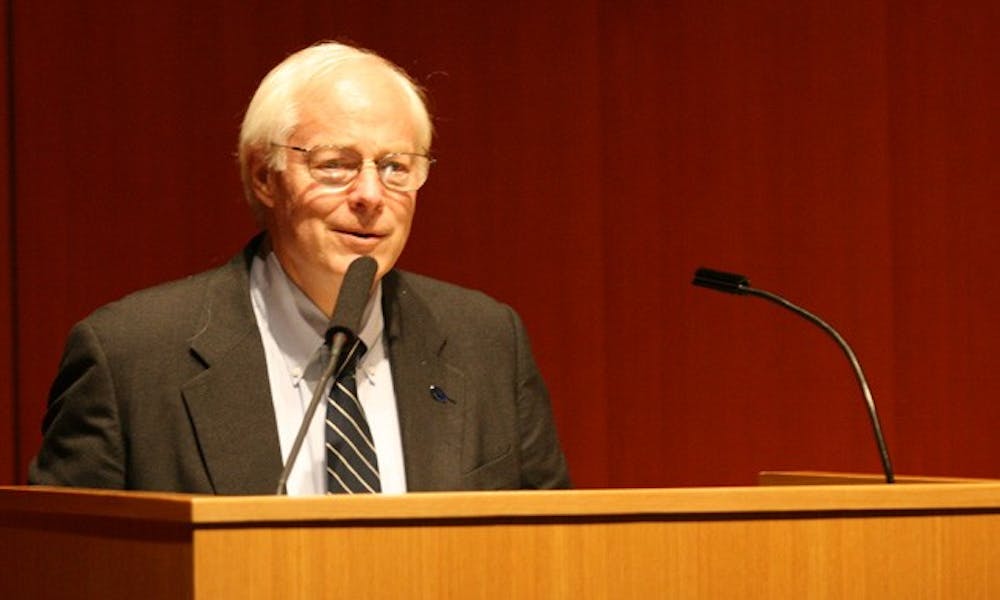In a speech on civility in discourse, Jim Leach reminded the crowd that Thomas Hobbes had once called the life of man “nasty, brutish and short.”
Leach, the ninth chairman of the National Endowment for the Humanities, spoke Monday at the Nasher Museum of Art. The lecture comes as part of Leach’s “Civility Tour,” a 50-state tour that started in November 2009 that addresses the need for humanity in what Leach called a “Hobbesian world.”
“I’ve embarked on a tour of the country talking about the subject of civility, and in some ways there’s no subject that could be duller,” Leach said. “But if you take the context of history, change was wrought not only with concern about rights but also the nature of man.”
Leach’s lecture drew not only students and faculty but also those involved in art programs.
Leach previously spent 30 years in Congress representing southeastern Iowa and then taught at Princeton University’s Woodrow Wilson School of Public and International Affairs, until beginning his four-year term in August 2009.
With experiences in academia and politics, he made references to both classical philosophers and modern figures that ranged from Montesquieu and Thomas Jefferson to Newt Gingrich and Tip O’Neil.
Leach also emphasized the importance of respect in a what he believes is an increasingly polarized political atmosphere.
“If you develop a society based upon precepts of the rights of man, that includes the quality of man, which implies that people should respect what other people are thinking,” Leach said.
He added that although incivility in politics is nothing new, making reference to the 1804 duel between Aaron Burr and Alexander Hamilton, the current political climate is still troubling.
To demonstrate his point, Leach called the “You lie!” outburst by U.S. Rep. Joe Wilson, R-S.C., during a 2009 Obama speech “unfortunate.”
“Words matter—they reflect emotion,” he said. “They can clarify thought, cloud thoughts and bring out better angels in our nature or baser instincts. Conversely, healing words can do the reverse.”
Leach concluded with a light-hearted example of the incivility he has witnessed in politics: The difference between former Vice President Dick Cheney and Obama, he said, is that Cheney was called a fascist, but Obama has been called both a fascist and a communist “often at the same time and by the same person.”
Dean of Humanities Srinivas Aravamudan who invited Leach to Duke, commended Leach’s humanistic efforts.
“What he’s talking about is relevant in a time when the temperature has risen so much in politics with people screaming at each other,” Aravmudan said. “And the humanities disciplines are where we can learn more about history, culture [and] literature and get a sense of perspective so we don’t forget about the historical background to these issues.”
Sarah Schroth, senior curator for the Nasher, said she was curious to listen to Leach’s opinions because the museum applies to NEH for humanities grants.
“This is the new chairman of the NEH and as a curator, I am always interested to hear the direction of a new chairman.”
Get The Chronicle straight to your inbox
Signup for our weekly newsletter. Cancel at any time.

